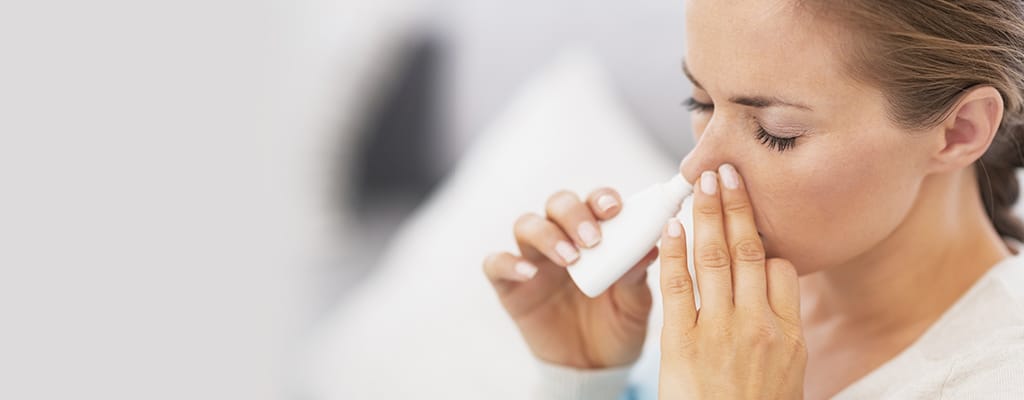When Should I Visit A Doctor For Allergies?
If you think you may have an allergy, consult an ear, nose, and throat specialist with New York ENT. Our doctors are experienced with diagnosing and treating allergies and have multiple allergy testing options to identify the cause of your reaction.

What are allergies?
Millions of people in the US suffer from allergies, sometimes referred to as hay fever. Allergies are caused by an immune system reaction, causing the body to attack itself. When a person is exposed to a substance, known as an allergen, an allergic reaction occurs in the form of itchy, watery eyes, runny nose, scratchy throat, hives, or shortness of breath. Common allergens include mold, pollen, dust, and animal dander.
What Causes Allergies?
Specific allergens can trigger a patient's allergies, causing them to cough or sneeze uncontrollably. For patients who experience severe allergies, eye redness or dryness and difficulty breathing may occur. To avoid experiencing allergy symptoms, it may be best to avoid environments that contain the following common allergens:
- Tree and grass pollen
- Dust
- Foods such as peanuts, milk, eggs, and seafood
- Animal fur from household pets such as cats and dogs
- Insect stings such as bee, wasp, or mosquito stings
What kinds of treatments are available for allergies?
Most allergies are not life-threatening, and can be managed with medication, allergy shots, or other methods. The most common treatment methods at New York ENT include:
- Prescription medication
- Allergy shots
- Nasal sprays
- Antihistamines
- Decongestants
What Are The Most Common Allergy Symptoms?
Many people can experience allergies differently. Some allergy symptoms do not present as severe in others, even though two people can be allergic to the same thing. Some common allergy symptoms include:
- Red, itchy, or watery eyes
- Itchy or runny nose
- Constant sneezing
- Rashes
- Hives
- Vomiting
- Skin swelling
- Itchy mouth, lips, or tongue
- Stomach cramps
- Diarrhea
- Shortness of breath
- Coughing or wheezing
- Chest tightness
How Can I Tell the Difference Between Allergies and a Cold?
It can be easy for patients to confuse allergy symptoms with signs of an oncoming cold. However, there are tell-tale ways you can determine the difference between an allergy and a cold. Once you know the exact differences between the symptoms, it can be easier to determine the treatment you’ll need.
When trying to determine if you have an allergy or a cold, consider the following:
Watch the timing of your symptoms. For example, if you notice you sneeze or feel congested every time you are near a dog, this can be a sign you are allergic to dogs or animal hair. These symptoms should disappear once an animal or its fur is nowhere near you. If you notice your sneezing or congestion lasts for up to seven days without an animal around, you may have a cold.
Pay attention to your sneezes. While sneezing is common for both allergies and colds, a sneeze to an allergic reaction is often paired with an itchiness of the eyes and nose.
Check the color of your mucus. Yellow or green nasal discharge, which can be seen when blowing your nose into a tissue, can indicate signs of a cold. Allergic reaction mucus is typically clear and almost watery.
When should I visit an ear, nose, and throat doctor?
If you think you may have an allergy, consult an ear, nose, and throat specialist with New York ENT. Our doctors are experienced with diagnosing and treating allergies, and have multiple allergy testing options to identify the cause of your reaction.



